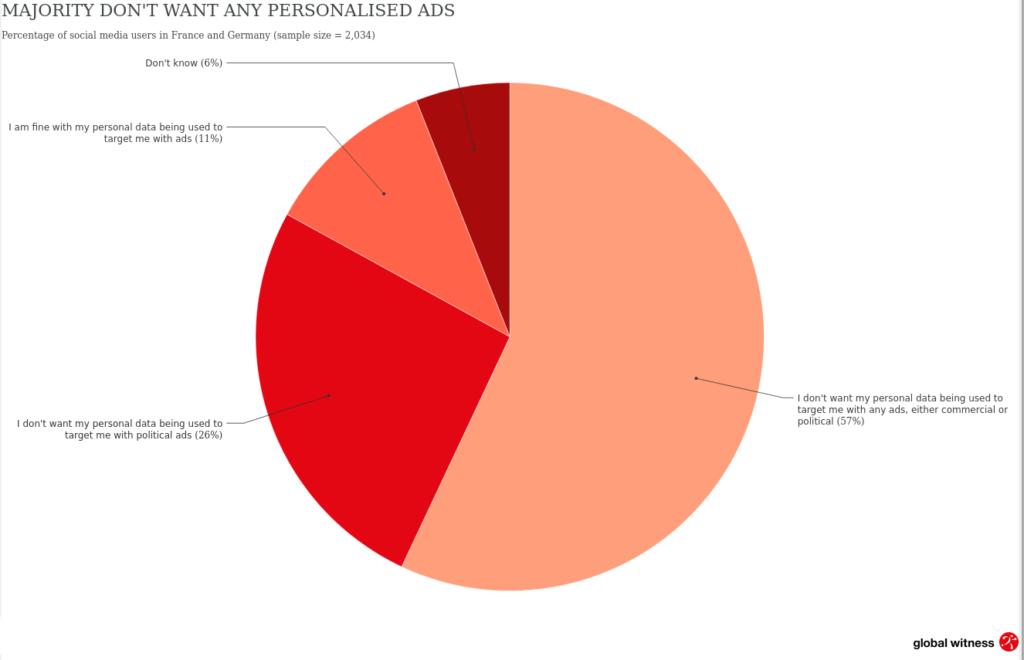As long as enterprises have tracked internet users’ behavior and life, marketeers have explained that data is needed for personalised advertisements. They claim personal ads, rather than broadcasting the same ads to all people like on television, are beneficial for everyone. Why is it then that only 11% of internet users in Central Europe are comfortable with ads that are based on their personal data? YouGov has published a survey that asked what people think of the use of their data for advertising.
The key insight from the survey is this:
- 11% of internet users are fine with targeted ads that have been selected for them, although they are aware that online advertising companies have access to their personal data.
- 57% of people don’t want any collected data to be used for ad targeting.
- 26% don’t want their information to be used for political ad targeting.
- 6% don’t know what this is all about.
YouGov conducted the survey online in February 2021 in France and Germany (the full results are here). 2034 valid responses was received for the survey. It is worth noting that Germany has one of the most strict privacy protection regulation for its citizens, and EU has been active in leading the work that regulates business practices on the internet.
When social media users were asked what kind of data collection they felt most uncomfortable with, the results were:
- 83% said social media services should not target ads that are selected based on personal data.
- 80% had the view that ads should not be targeted at them based on other people’s data.
- 78% said data collected outside the social media service should not be used for ad targeting.
- 75% regarded that behavioral data collected by the service itself should not be used.
The specific items that worry internet users the most with tracking and data collection when used for profiling and ad targeting were:
- 87% of social media users said ad targeting by income shouldn’t be allowed.
- 87% said health information was off limits.
- 84% voting information.
- 81% sexual orientation.
- 81% religion.
- 79% personal events, like pregnancy.
- 78% race or ethnicity.
- 73% where you connect to the internet.
- 67% where you live.
- 56% gender.
- 52% age.
Some of the items that people feel uncomfortable with are data that users haven’t directly given to a social media service or any other service on the internet. Items like personal events and where users connect to the internet can be determined from tracking data when it is combined with other pieces of data.
Charts by Global Witness.

